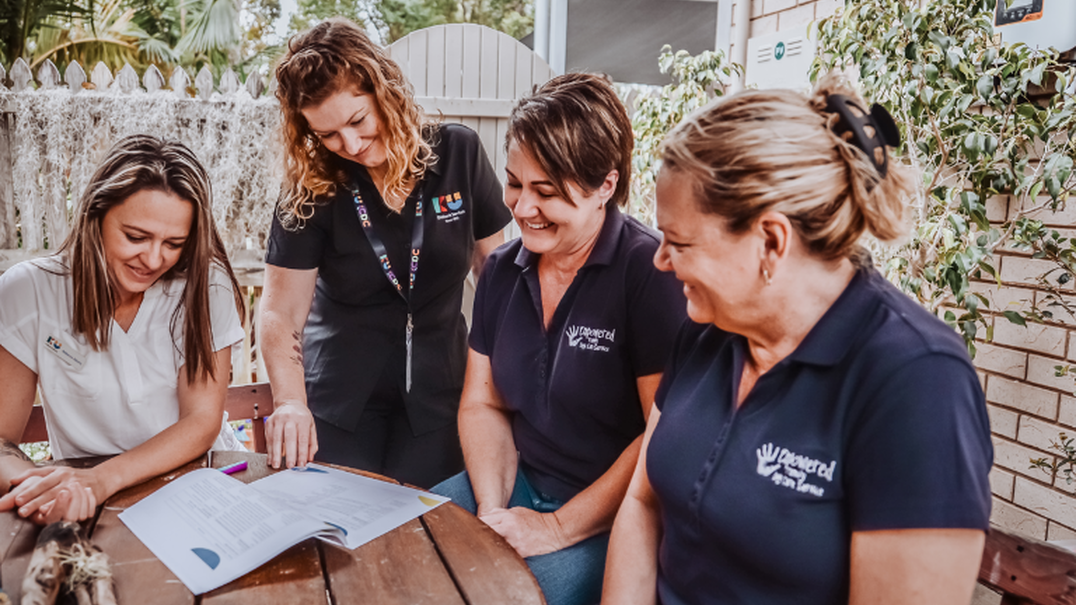Relationships are key: Engaging with Family Day Care
Read how Empowered Family Day Care worked collaboratively with Inclusion Support QLD to engage in critical reflection to support the inclusion of all children.

“Celebrating Torres Strait Islands Floral Friday has been a great starting place for our service. It has enabled us to bring the vibrant diversity of the Torres Strait Islander culture into our learning environments and encouraged us to further explore other Torres Strait Islander customs and traditions, educating ourselves and our children towards becoming more culturally competent and confident.” Director Lee Green.
During reflective conversations with her Inclusion Professional (IP), the Director of Goodstart Burleigh Waters ELC, Lee, identified that while the service held knowledge around Aboriginal culture, they had limited insight into the Torres Strait Islander culture. Unsure where to start, they worked collaboratively with their IP on their Strategic Inclusion Plan (SIP) and chose a strategy to acknowledge and embed Torres Strait Island culture into the service. Educators began by introducing Floral Fridays into their weekly program. Floral Friday is a tradition on Torres Strait Island where everyone wears floral for the day. Educators and families embraced the tradition, and it was such a meaningful, fun way to bring colour and joy into the day while promoting communication and culture.
Lee and her team are eager to continue their learning around Aboriginal and Torres Strait Islander cultures. Through the development of their Reconciliation Action Plan (RAP), they have committed to thinking more holistically when embedding Aboriginal Torres Strait Islander perspectives, and they want to continue to ensure educators remain culturally aware and confident to embed these perspectives into their programs.
The Early Years Learning Framework asks educators to consider the ‘culture and context of family as central to children’s sense of being and belonging, and to their success in lifelong learning’ (EYLF, 2009, p.16).